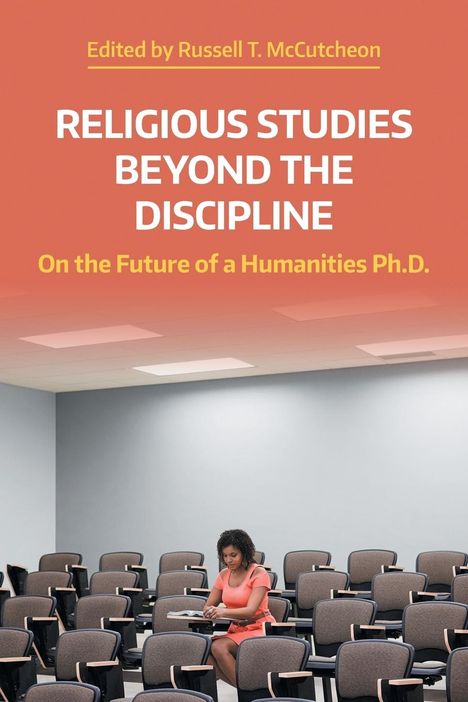Russell T. Mccutcheon: Religious Studies Beyond the Discipline, Kartoniert / Broschiert
Religious Studies Beyond the Discipline
- On the Future of a Humanities Ph.D.
(soweit verfügbar beim Lieferanten)
- Verlag:
- Equinox Publishing Ltd, 10/2024
- Einband:
- Kartoniert / Broschiert, Paperback
- Sprache:
- Englisch
- ISBN-13:
- 9781800505445
- Artikelnummer:
- 11884432
- Umfang:
- 148 Seiten
- Gewicht:
- 263 g
- Maße:
- 234 x 156 mm
- Stärke:
- 8 mm
- Erscheinungstermin:
- 16.10.2024
- Hinweis
-
Achtung: Artikel ist nicht in deutscher Sprache!
Weitere Ausgaben von Religious Studies Beyond the Discipline |
Preis |
|---|---|
| Buch, Gebunden, Englisch | EUR 116,83* |
Klappentext
Given the continued challenges that face the higher education job market in the humanities in North America, this multi-authored volume offers a critical assessment of the current situation of humanities doctoral students, early career scholars, and those now working in doctoral degree-granting institutions in the U. S. along with concrete proposals for a way forward. In turn, these proposals are the starting point for constructive reflections by faculty now working in leading American doctoral programs. The aim of this volume is to initiate a conversation among future, current, and recent graduate students, as well as those who train them, concerning the content, process, and purpose of acquiring advanced research skills in the early twenty-first century university. This is a time when a decreasing few who earn these degrees will ever attain work as tenured faculty members while an ever-increasing number will instead end up either in perpetually insecure contingent faculty positions or, for a variety of reasons, seek careers outside academia, where the explicit relevance of their training is currently uncertain and uncharted. This volume asks what the role of these students' faculty, supervisors, degree programs, and departments ought to be in helping them-and thereby helping these doctoral programs themselves, along with their affiliated faculty-to excel in an economic, and sometimes political, environment that is often not kind to scholarship in the humanities.


